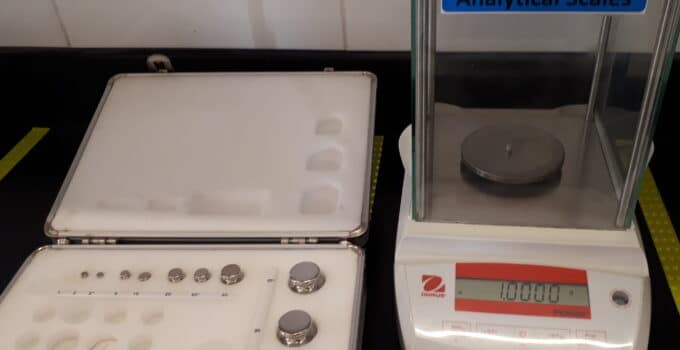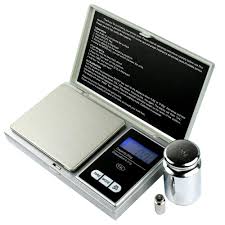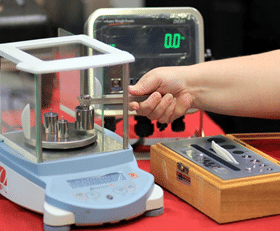
Calibrate a scale by reading through this article and you may find some of the information is helpful.
Scales and balances may provide some inaccurate results over time because of the machinery’s wear and tear. Small scales are susceptible to experience damages or inaccuracy in results because these are sensitively built. That’s why proper calibration of the weighing scale is necessary for you to have an accurate or proper reading of measurements. Accuracy on the results is always crucial, especially when it comes to specific tasks such as scientific experiments, baking pastries or cakes, and weighing of goods or commodities.
The proper procedures for scale calibration are extremely essential since weighing devices or instruments are utilized in numerous legal fields. If you have a weighing scale that provides inaccuracy in results, you might possibly miss out on a few centavos. In some instances, this may give some major risks that would compromise your business or your reputation. For example, if you provide the wrong quantity of medicine to someone, then that could provide negative side effects. And this may be harmful to anyone. This is just a typical example of how a weighing scale affects the activity of an individual, which somehow provides a negative impact on you or to others.
Calibrating your weighing scales is rated based on the specified quality system. For, say, in the air or marine traffic, forensics and safety, and healthcare, they are also rated using ISO 9000 system. Furthermore, this system is monitored and mandated by the law.
When to Calibrate a Scale?
If you have some weighing scales at home, in the office, or for business purposes, then you need to make sure that these weighing scales are totally calibrated. In this way, you can have an assurance that these scales that you can have can give you accurate results of measurements. If you’re unsure about its outcomes, then you may reset the scale and start for recalibration. Perhaps, you’re asking yourself if when to calibrate a scale.
The frequency or interval of calibration of your scales depends on different factors. You may ask some recommendations from you, the manufacturer of your device, if when would be the best time to calibrate your scale. Some factors that may affect your decision for calibrating your scale may include the manufacturer’s recommendations, the environment where the scale is used and stored, the frequency of utilization of the scale, and how important the exact weight to your activity or business. Some instruments or scales need to be calibrated once every year, while some other types of scales need to be checked daily for accurate results.
After you consider these factors, it is also advisable to have a certified calibration even once for every quarter, plus a weekly spot check on the device. This is to ensure that your scale will give you quality and accurate results when used. The manufacturers’ recommendation is also important for you to consider since they know the best things about your scale. It would be safe to assume that your manufacturers know better about the product that they offer in the market. So, proper maintenance for the scale that you have will be given to you.
If your weighing scales are utilized multiple times in a day within few consecutive weeks, of course, you can possibly expect that there’s normal wear and tear on the product. Therefore, if these scales are frequently used, it is also advisable to calibrate these scales as frequently as possible. The environment also plays an important role as to know when you will calibrate your scale. For instance, if your weighing scale is located, which contains fluids, dust, or some other types of substances, your weighing scale may buildup substances that interfere with or affect the scale’s performance. In addition to that, if your weighing scale is situated where there’s a vibration, mechanical shock, or static electricity, then the performance accuracy of the scale might be affected.
Generally, you need to consider frequent calibration of scales to make sure that substances and some environmental factors will not affect the performance of the device. Finally, it is also important to consider how crucial an accurate weight or measurement is to the activity or business you have. If your business company cannot afford to have a slightest inaccuracy of results in weights or measurements, then a frequent calibration is necessary. Calibrations of scales are made and done based on various frequencies. It is important to consider that if your instrument or device is recurrently calibrated or almost subject to repairs or adjustments, then it would be a mark of a bigger problem. Even though the frequency or interval, or scale calibration depends upon utilization, a rapid declination of correctness warrants extra troubleshooting.
Once you have determined the right frequency for the weighing scales you have, you need to take into consideration the signing of some service plans with the calibration service providers. There are many companies out there that would be willing to help you calibrate your weighing scales.
Calibration Weights
Calibration weights are also recognized as test weights, reference weights, or standard weights. These calibration weights, which are engineered to high accuracy and tolerance, are utilized for performance checking or testing and for the calibration of the precision balances, analytical balances, and even general-purpose scales at the educational settings, research laboratory, and some other working areas. These weights may be utilized for calibrating other unknown or improvised weights.
Calibration weights may take the form of some simple cylinders, discs, leaves, or wires. These are generally available in a set or package, often provided with gloves and tweezers inside the protective case to ensure safekeeping. These can also be offered in the market as individual weights. Moreover, these are commonly provided as accessories to have a compatibility with specified models or types of balance.
Calibration weights are usually made up of metals like polished brass and a special type of stainless steel or aluminum to ensure durability and high resistance against corrosion that would affect its accuracy results. These are also available in the nominal values of few milligrams around 10kg or even more than that. These are also supplied with the right statement of accuracy or certifications, traceability, and compliance.
The classification of calibration weights by the organizations like NIST, OIML, and ASTM is always based on the accuracy of the instrument. The correct classification depends on the accuracy degree and the balance resolution required to satisfy a specific weighing application.
The fundamental classes include:
• Class F1 weights of calibration are utilized with accurate electronic balances
• Class M1 weights of calibration are utilized with the standard scales
• Class E2 weights or calibration are utilized with highly precise analytical balances.
We hope this article has given some fundamental information about calibrating a scale.





No Responses